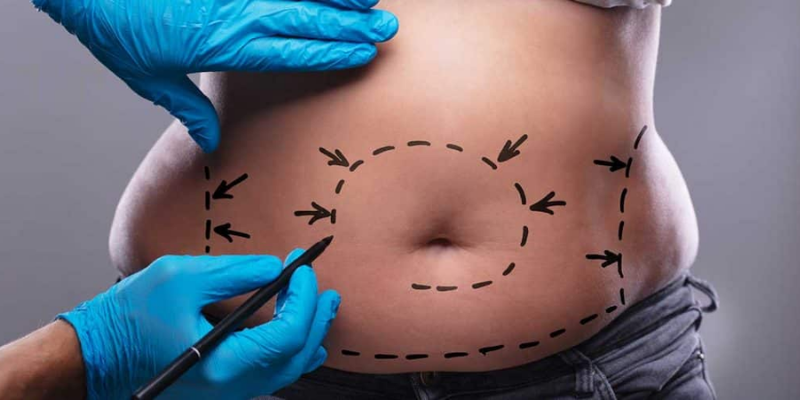Bariatric Weight Loss
Bariatric weight loss is one of the most popular medical topics of recent times. Obesity surgery is a kind of weight loss surgery. There are a variety of surgical procedures. It’s seldom the first thing that comes to mind. Bariatric surgery is an option for obese people who have failed to lose weight after trying everything else, including diet, exercise, and medication. Those who have tried all other strategies to lose weight and have been unsuccessful might consider obesity surgery. All necessary units should be consulted prior to a surgical operation and the patient must be fit for surgery in terms of anaesthesia. Body mass index (BMI) is used to identify patients for treatment. If the patient’s BMI is more than 40, surgery may be an option. In diabetic individuals with a BMI between 30 and 35 and blood sugar levels that cannot be managed by medication.
Type 2 Surgery may be suggested. Obesity surgery has evolved throughout the years as technology has advanced. The doctor and patient work together to determine which procedure is best for the patient’s situation. The insertion of a gastric balloon is the most straightforward way of weight loss. Under local anaesthetic, an endoscope is using to put a balloon in the stomach, which may either filling with liquid or air. 15-20 minutes are require for this procedure. As a result, the stomach’s capacity for food intake is limit, and the stomach becomes quickly saturate. Patients might expect to shed 7-8 pounds in a few months with this technique. Endoscopic removal takes around 5-6 minutes, and the balloon may stay in the body for up to a year.
What Is Bariatric Weight Loss?
However, if the patient does not modify their lifestyle after the balloon is removing and does not follow their diet, the patient’s weight reduction may restore. However, during a period of six months to a year, individuals learn how to eat by experimenting with the new foods they are introduce to. To prepare for basic morbid obesity surgery, the gastric balloon procedure is employed nowadays either in individuals who are too hazardous to have surgery or in very obese persons. Non-overweight individuals might also benefit from it. It is one of the most widely using ways of shedding pounds around the globe. When 80% to 90% of the stomach is removing, a tube-like digestive system is creating. The calorie intake of the individual is lowering. In one to two hours, gastric sleeve surgery may also finish using the closed approach. A two- to three-day hospital stay is typical.
Normal eating may resume after a two-week liquid diet and two weeks of soft food consumption. There may a need for vitamins. Ghrelin hormone secretion is inhibitingt by removing the stomach’s fundus area and preventing the release of Ghrelin during surgery. An average of 80% of extra weight may be shed within a year after having this procedure finish, according to experts. After this procedure, it is important to chew the food carefully and eat it in modest amounts. The importance of regular physical activity should not overlook, however. Avoiding high-calorie liquid meals, particularly those containing refine sugar, is necessary to prevent regaining the weight that was lost. The stomach is split into two halves in Gastric By-Pass surgery. It’s a little piece and a huge piece.
Bariatric Weight Loss Facts
The duodenum and a portion of the small intestine from the beginning are bypassing and reconnecting by the newly developing small stomach. The focus is on two specific scenarios. Restricting calorie consumption and decreasing nutrient absorption are two of the most common methods of weight loss. In today’s laparoscopic surgery, these techniques may use effectively. One of the most frequently performing bariatric surgery procedures is the gastric bypass. With its great metabolic efficiency, it’s one of the best ways to combat obesity and the health concerns that come with it. Up to 1.5 years of weight reduction is possible. Following up after surgery is critical. Patients may need to take vitamins for a lengthy period of time. When it comes to nutrition, people need to talk to their dieticians and doctors. There is higher weight loss with Duodenal Switch since it impacts the metabolism directly.
Those who have a body mass index (BMI) of more than 50 kg/m2 may benefit most from this approach. In this procedure, the amount of food a patient consumes is regulating, as well as the amount of food absorbed. Excess weight-related disorders such as diabetes, hypertension, and high cholesterol may effectively treate this way. Patients who regularly eat high-fat diets will benefit from this procedure since it works by reducing the absorption of fat. Despite the fact that it is one of the most effective surgical procedures for obesity surgery, it is seldom performing because of the high risk of problems during and after the procedure. Chronic, foul-smelling diarrhoea and vitamin and protein shortages are typical after this procedure because fat absorption is limiting. It’s a less intrusive and simpler to do gastric bypass operation.
Losing Weight With The Safest Ways
After establishing a long stomach pouch, a 2-meter-long intestine section is attach to the stomach pouch. Despite the fact that the surgery is quicker and cheaper, the effects of avoiding type 2 diabetes and losing weight are excellent. Also, the leftover stomach is not visible endoscopically, therefore patients may require vitamin supplements long term. The treatments need general anaesthesia and laparoscopic (closed) surgery. According to the anaesthetist’s suggestion, the patient may need to spend the night in the critical care unit.
After the anaesthesia wears off, the patients are escorting back to their rooms. A successful treatment, patients need to take steps to preserve their weight reduction and live a healthy and full life. After the patient has been discharging from the hospital, the therapeutic method continues. The patient should carefully follow the nutritionist’s and surgeon’s diet plans. The patient should not move throughout the surgery and should not interfere with normal monitoring. Due to the psychological effects of dieting that frequently fails. Bandage your wounds first, and then listen to your body and your spirit.
Would a Bariatric Weight Loss Surgery Change My Life?
Bariatric weight loss surgery is a viable option for those who are severely obese and have not had success with other weight loss methods. For those interested in pursuing this type of procedure, research the types of surgeries available and consult a qualified medical professional to determine which type best suits their needs and health status.

Additionally, it is vital to find a surgeon specializing in bariatric weight loss surgery with an excellent track record of successful patient outcomes. You do not want to risk your life for weight loss. Understand all the risks associated with any surgery and weigh these against potential benefits to make an informed decision.

Post-surgical care should include dietary and lifestyle modifications such as increased physical activity and nutritional counseling to maximize long-term results. By following these steps, individuals can ensure that they receive safe, effective treatment for their obesity to help them reach their health goals.
In addition to considering all available treatment options and finding a reputable surgeon, those considering bariatric weight loss surgery should also be aware of potential risks associated with the procedure. If you have specific questions like “can I drink alcohol after bariatric surgery?” regarding the procedure, contact us today to book your free consult and see if you are eligible for a weight loss surgery.


